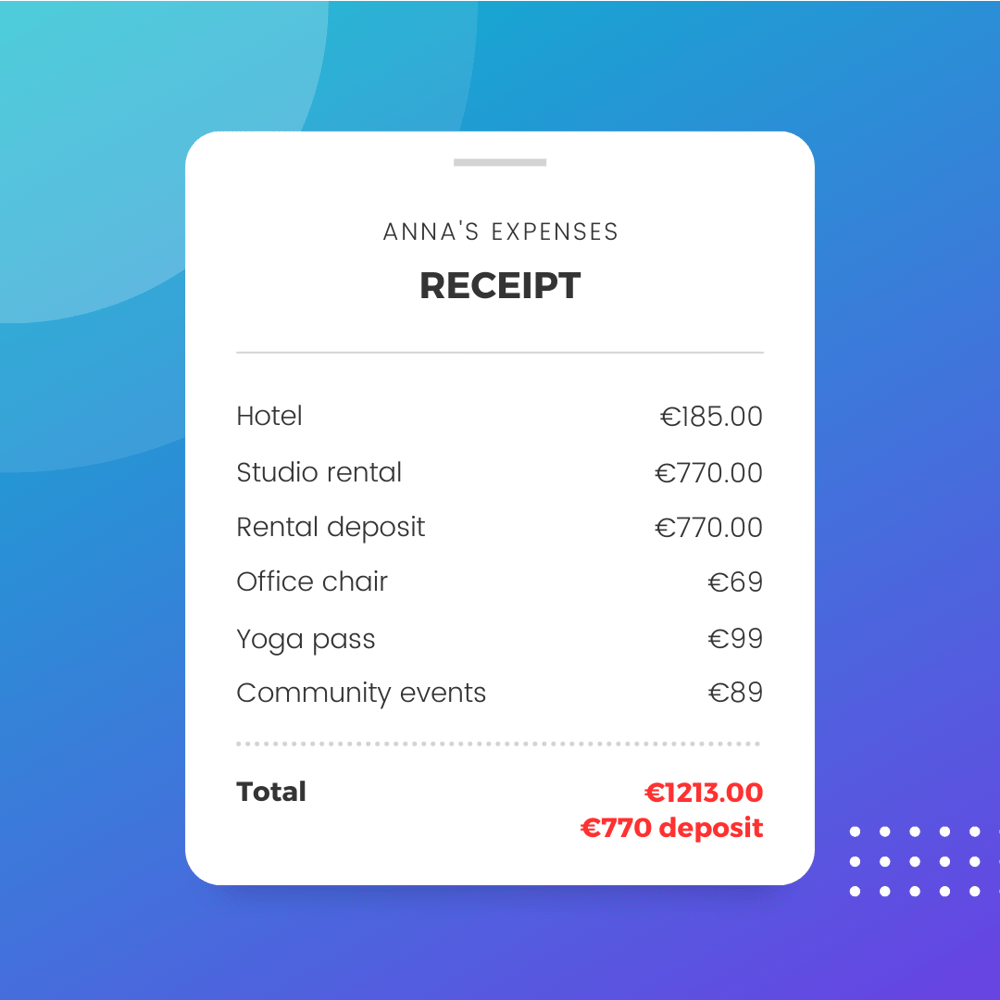In today's rapidly evolving digital landscape, a new breed of professionals has emerged: the laptop class. These individuals, armed with laptops and a thirst for exploration, have embraced a decentralized and nomadic lifestyle while working remotely. They have redefined the traditional concept of work and are breaking free from the confines of traditional office spaces. However, as their numbers grow, a pressing question arises: Will the world's infrastructure catch up to support them?
Hello, what kind of nomad are you?
digital nomad
/ˌdɪdʒɪtl ˈnəʊmæd/ noun
A digital nomad is an individual who leverages technology to work remotely and leads a location-independent lifestyle. Rather than being tied to a specific physical location, digital nomads have the freedom to work from anywhere with an internet connection.
The concept of the digital nomad has evolved since the economic crises and increasing rental prices, prompting many individuals to explore alternative living arrangements in search of better opportunities. A digital nomad distinguishes themselves from both tourists and permanent residents, existing in a somewhat transitional state. They possess unique lifestyles, environmental preferences, and specific needs when it comes to their work and living spaces. So, what kind of nomad are you?
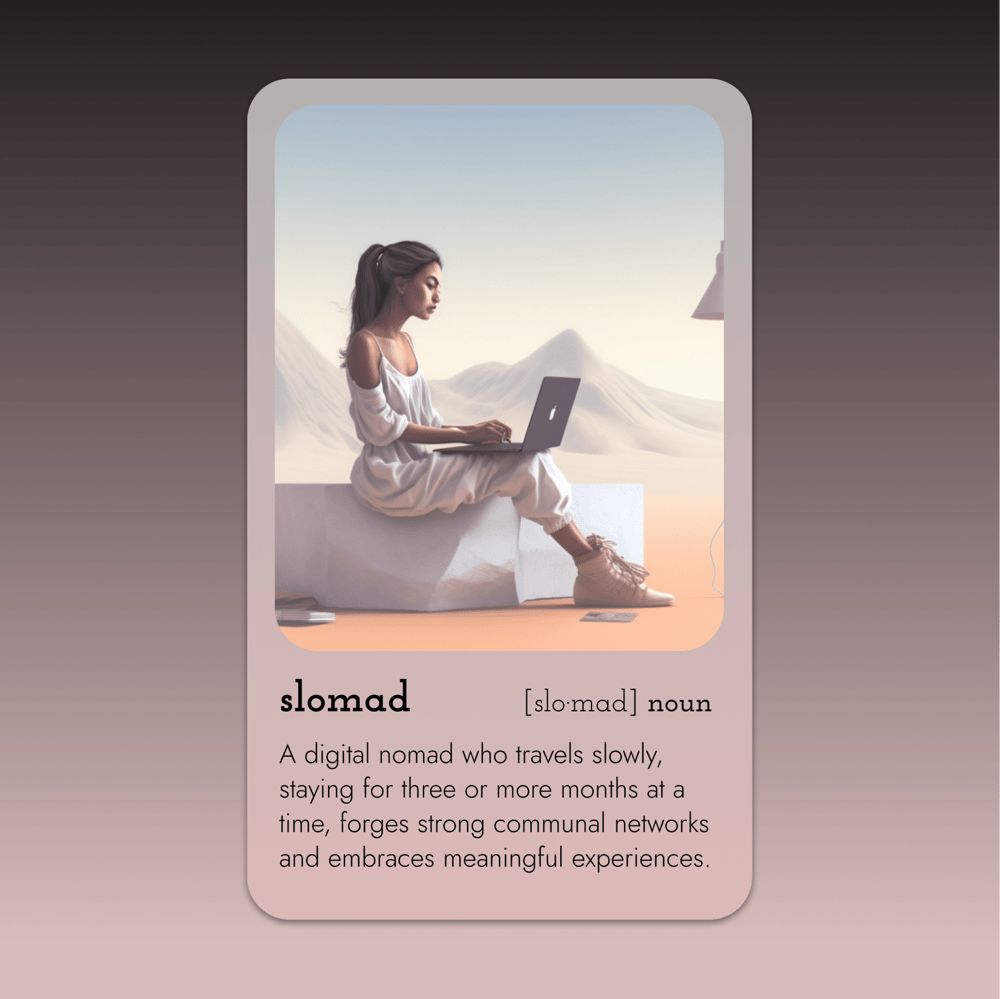
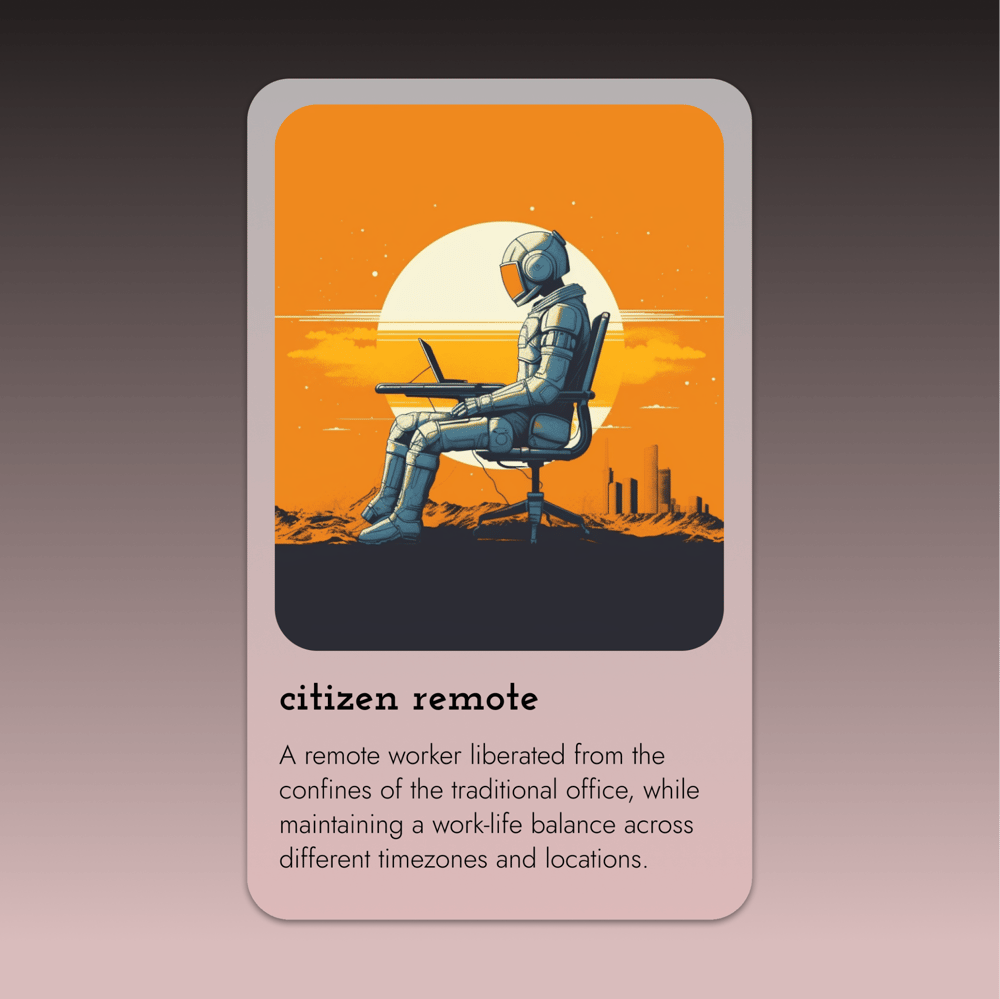
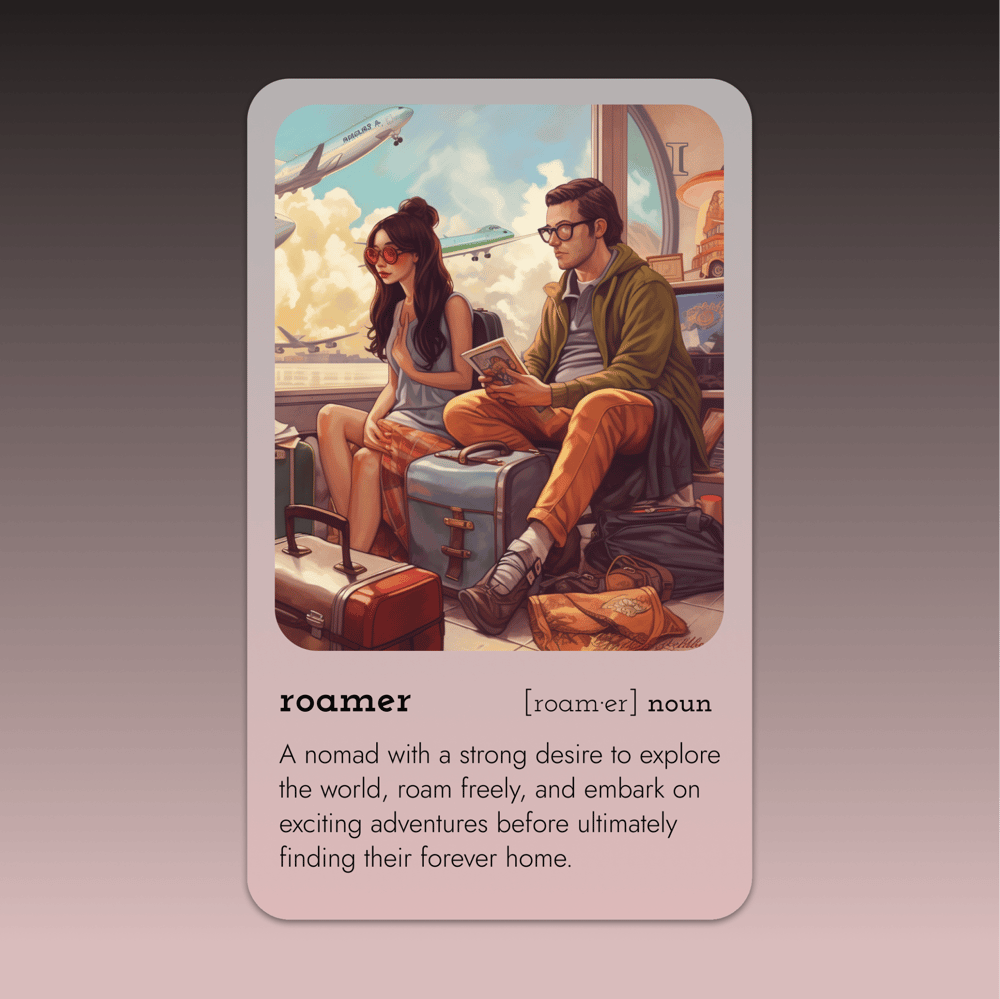
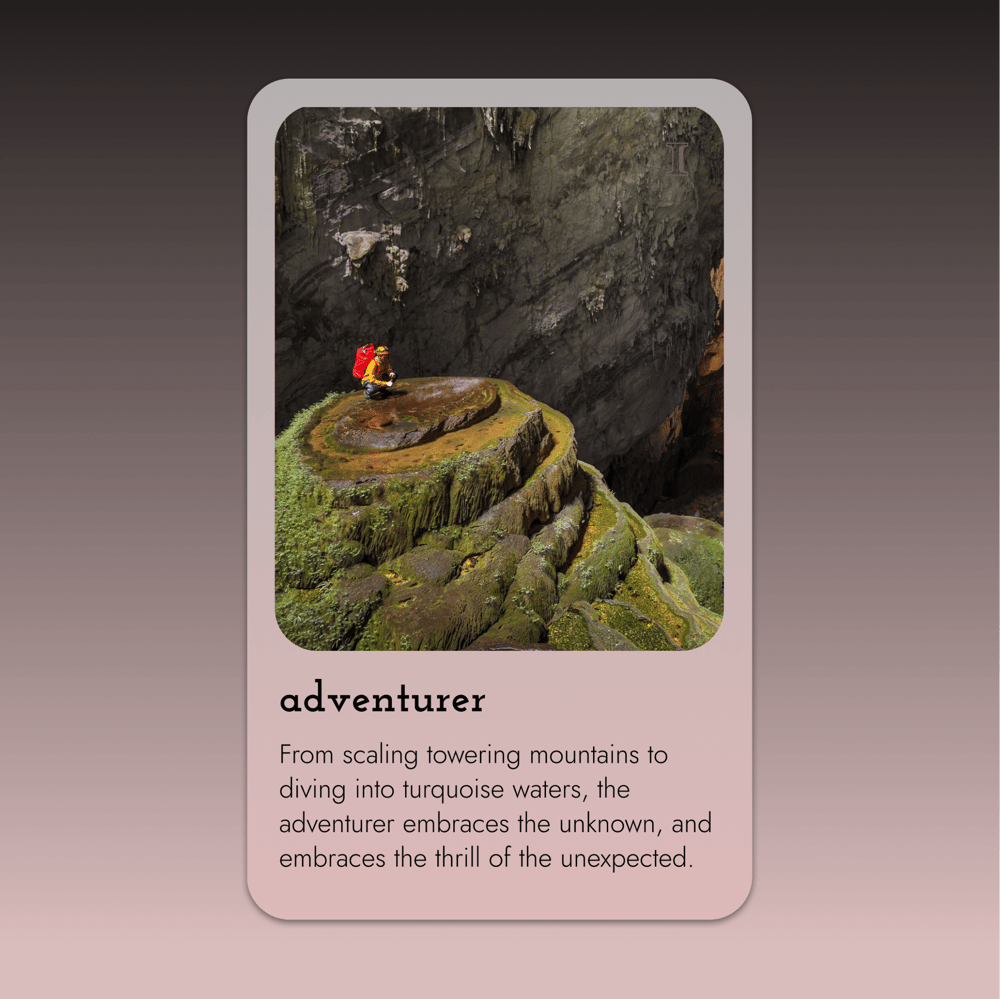
Challenge #1: All-Inclusive Living Spaces
Many nomad hotspots continue to rely on traditional accommodation options geared towards tourism, such as hotels, hostels or dorms. However, these types of accommodations often lack the privacy and conducive environment necessary for rest and focused work. Long-term rentals are generally not feasible for nomads, particularly those constrained by visa limitations and unable to commit to year-long contracts. Some nomads resort to booking Airbnbs for monthly stays, but this option also comes with its own set of challenges and has recently faced issues in many countries.
Digital nomads, like anyone else, require the right living space that supports their need for rest, concentration, and personal growth. It is crucial to acknowledge the limitations faced by nomads, including visa durations, the challenge of securing long-term rental contracts, and the limited time available to negotiate a contract with local landlords.
At Roam, we designed our All-Access Membership to address these specific needs and provide an optimal living environment for nomads.
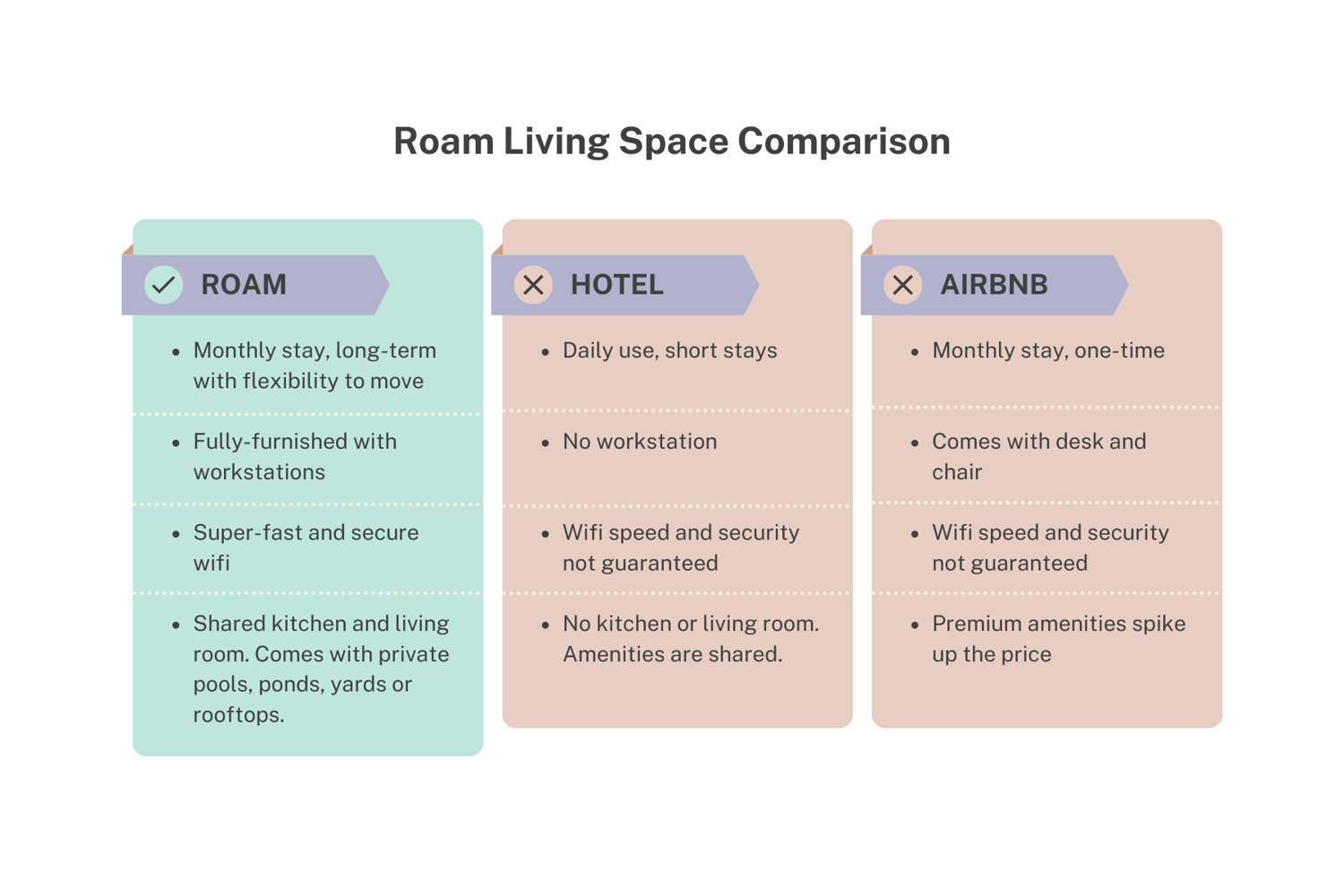
Challenge 2#: Visa Limitations and Hidden Costs
While Nomad Visas are still in their infancy stage, and obtaining permanent residency is a lengthy process that can take years, many nomads are still constrained to staying on tourist visas. Unfortunately, being limited to 15, 30, or 60 days of stay at a time can become quite costly for nomads in the long run. Here are some extra expenses they may encounter:
- Visa runs, visa extensions
- Temporary accommodation
- Rental deposits equals to 1 month rent
- Expenses for workstation set-ups or co-working spaces
Let's consider the following example featuring a 25-year-old Anna:
Anna is a social media manager and an aspiring yogi from the Netherlands, embarking on a self-discovery journey to Bali, Indonesia. Anna booked a flight to Bali, Indonesia for the first-time embarking on a self-discovery journey. Anna works as a social media manager which gives her the flexibility to work remotely as long as she can perform her duties and take daily stand up calls with her team.
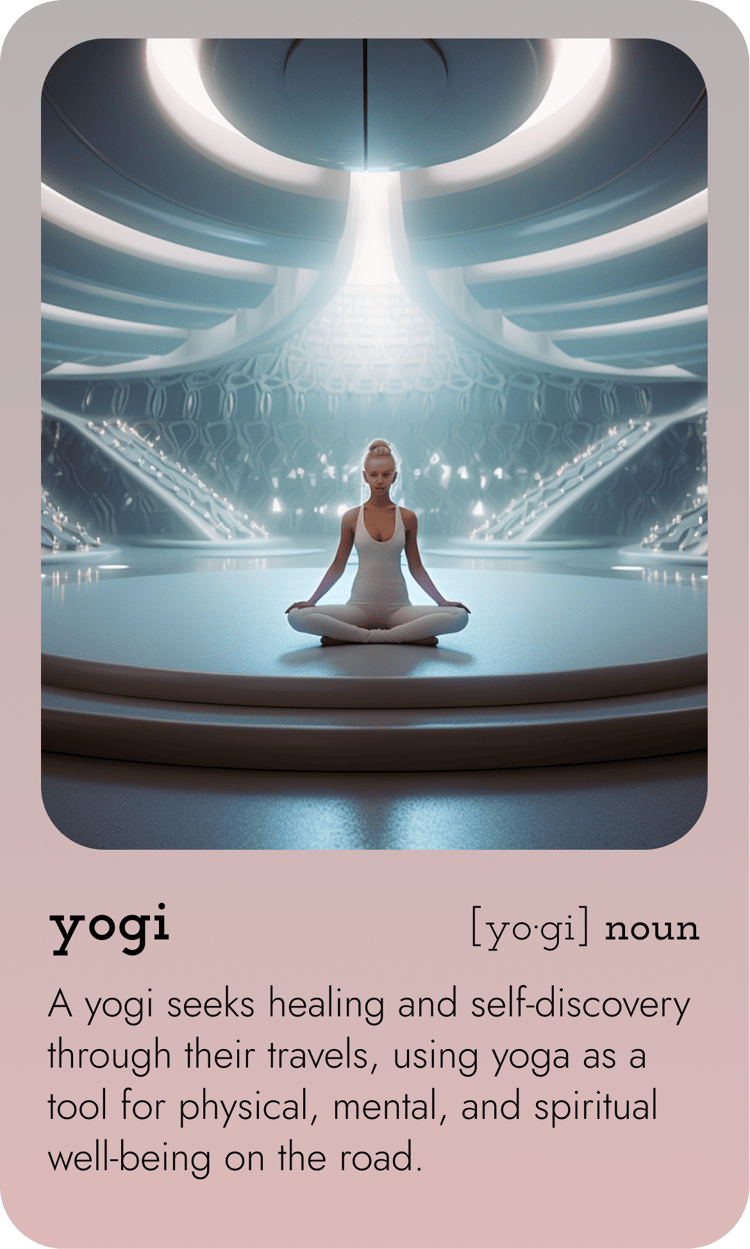
Upon arrival in Bali with a Visa-on-Arrival using her Dutch passport, Anna discovered that her booked Airbnb apartment was canceled due to recent law changes. She opted to stay in a hotel for four nights to allow time for finding a suitable place.
Once settled in Denpasar, Anna outlined her accommodation requirements for her one-month live-work experience in Bali:
- 1 comfortable bed, in a studio or 1 bedroom apartment.
- Private, quiet space for focused work and handling calls.
- Located in Canggu, walking proximity to cafes and yoga studios.
- Private or shared amenities like pools, rooftops, yards are a plus.
- Pricing for a month-long stay.
Anna was shown several rental options, including a guesthouse, a studio apartment, and a private one-bedroom villa with a pool. While the guesthouse was the most affordable, it didn't offer the quietness and serenity Anna desired for focused work and rest. The private villa with pool provided the privacy and amenities she wanted but exceeded her budget and felt too isolated. In the end, Anna chose a studio apartment that was in an apartment complex with a shared pool that provided the desired privacy as well as the opportunity to connect with fellow guest stayers.
Now, let's compare Anna's final expenses to the value she could have obtained from Roam's Nomad All-Access Pass.
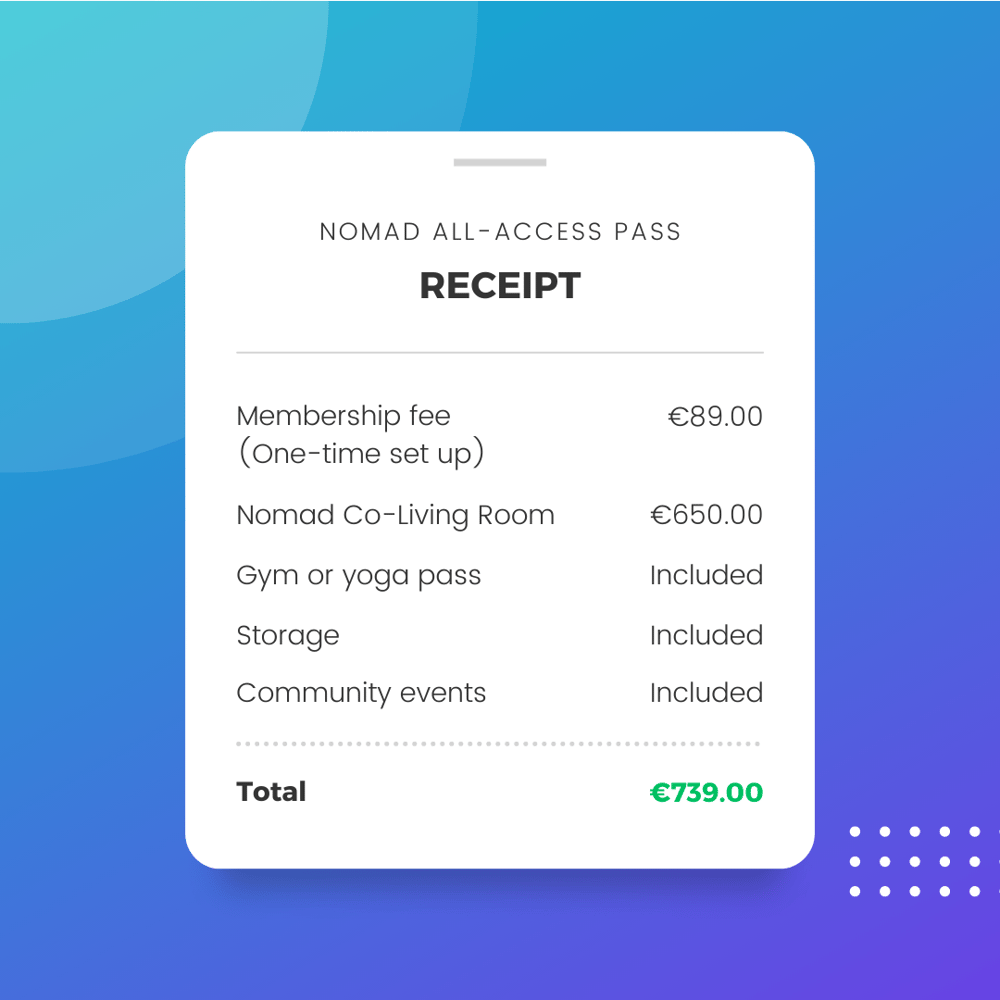
Challenge #3: The Psychology of Instability
Security and safety are paramount for our overall well-being. The foundation for thriving includes elements such as shelter, environment, connection, and community. When we lack consistent and stable access to these fundamental needs, it can greatly impact our physical and mental health.
While the world's infrastructure is still catching up to meet the needs of nomads, it is crucial to find the right solutions to support your transition period. Navigating this journey requires finding suitable resources and support systems to ensure a smooth and fulfilling experience as you embrace the nomadic lifestyle.
Read more: 4 Hardest and Easiest Second Residencies to Get In 2023 (Pathway to Global Citizenship)
Challenge #4: Fleeting connections
We are all familiar with the bittersweet feeling of making friends only to have to say goodbye too soon. The connections we form as nomads can often be fleeting, especially considering the current visa laws that limit our time in one place.
However, at Roam, we have created a platform that harnesses the power of community and allows us to forge meaningful connections that transcend borders and time constraints. We understand the importance of these connections in the nomadic lifestyle, and our mission is to facilitate lasting relationships and support networks that can withstand the challenges of a transient lifestyle.
Community
/kəˈmjuː.nə.ti/ noun
Community refers to a group of individuals who share common interests, values, goals, or geographical locations. It is a social unit characterized by mutual support, interaction, and a sense of belonging. Communities can be found in various contexts, such as neighbourhoods, schools, workplaces, online platforms, or specific interest groups. They often provide a space for individuals to connect, collaborate, and build relationships, fostering a sense of identity and shared experiences among its members.
Upon registering as a member, download Roam's native app to start engaging with Roam's fellow members.


